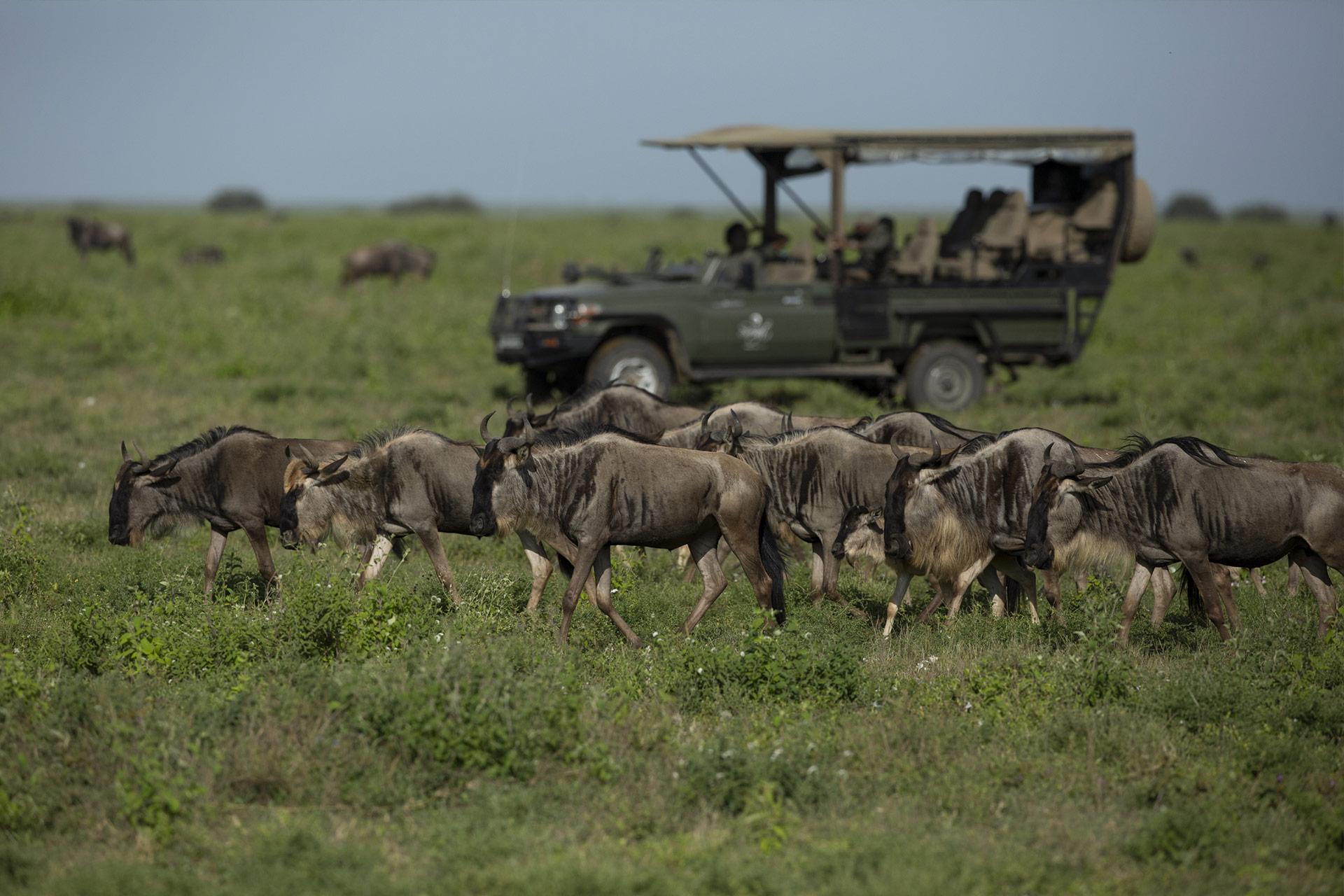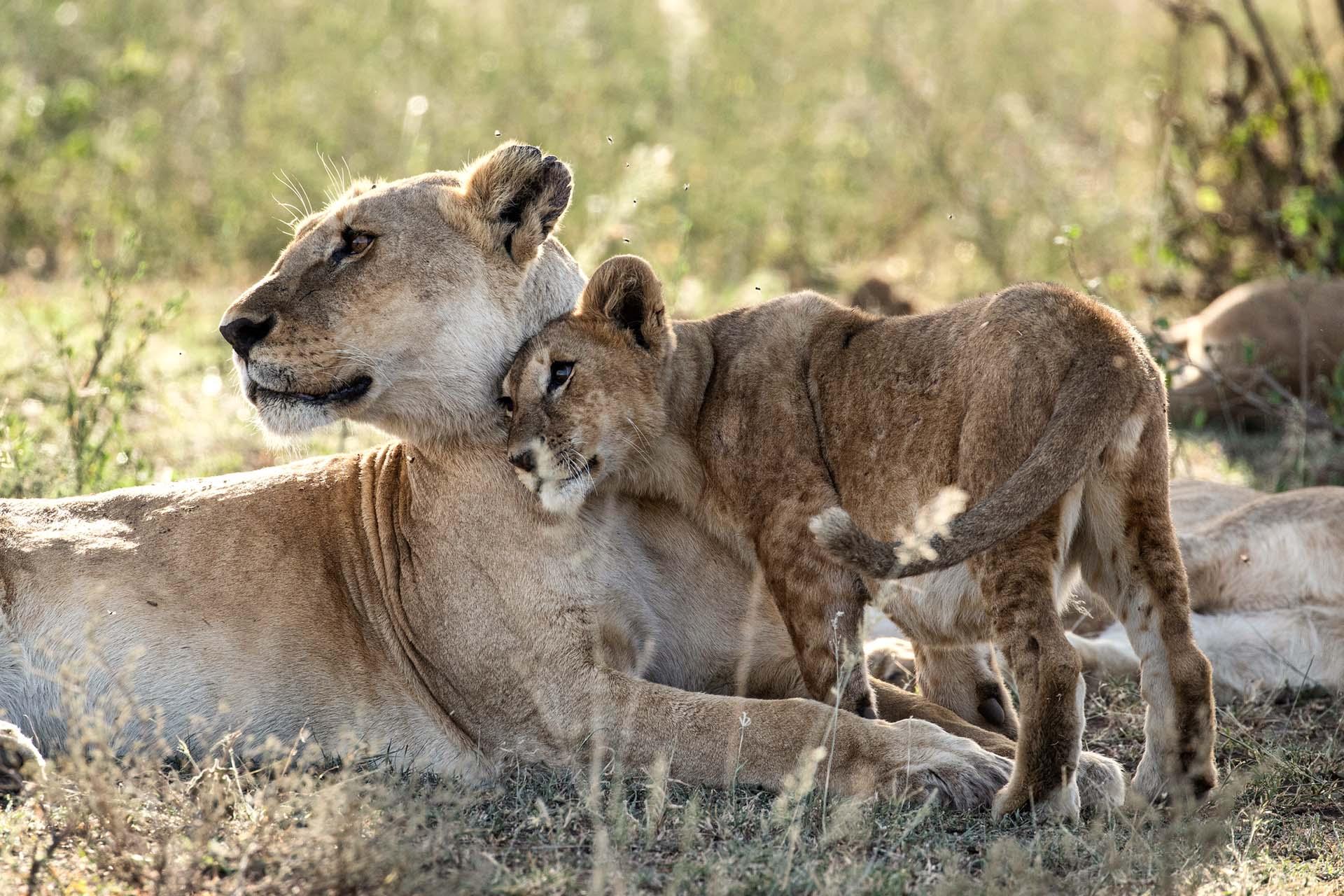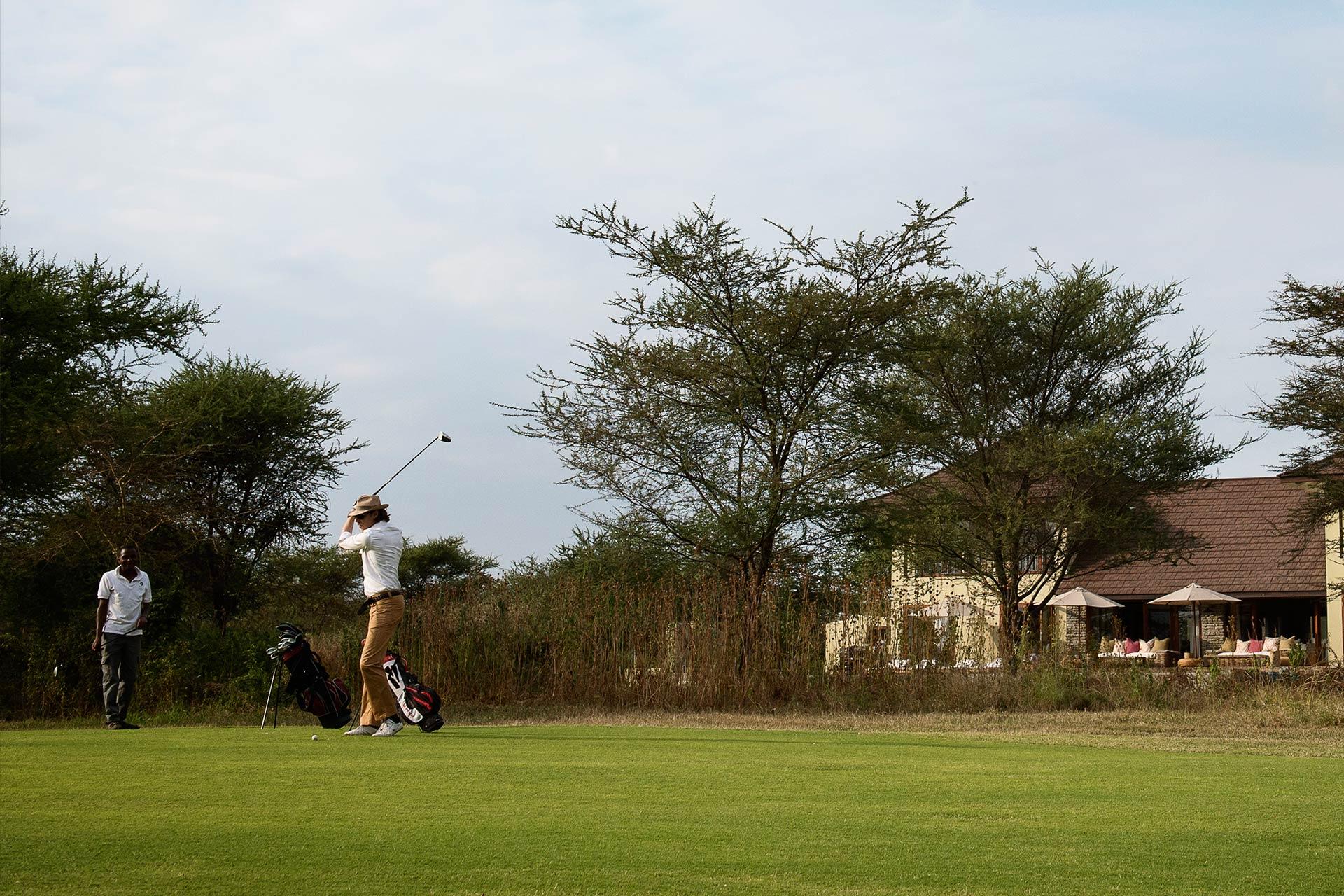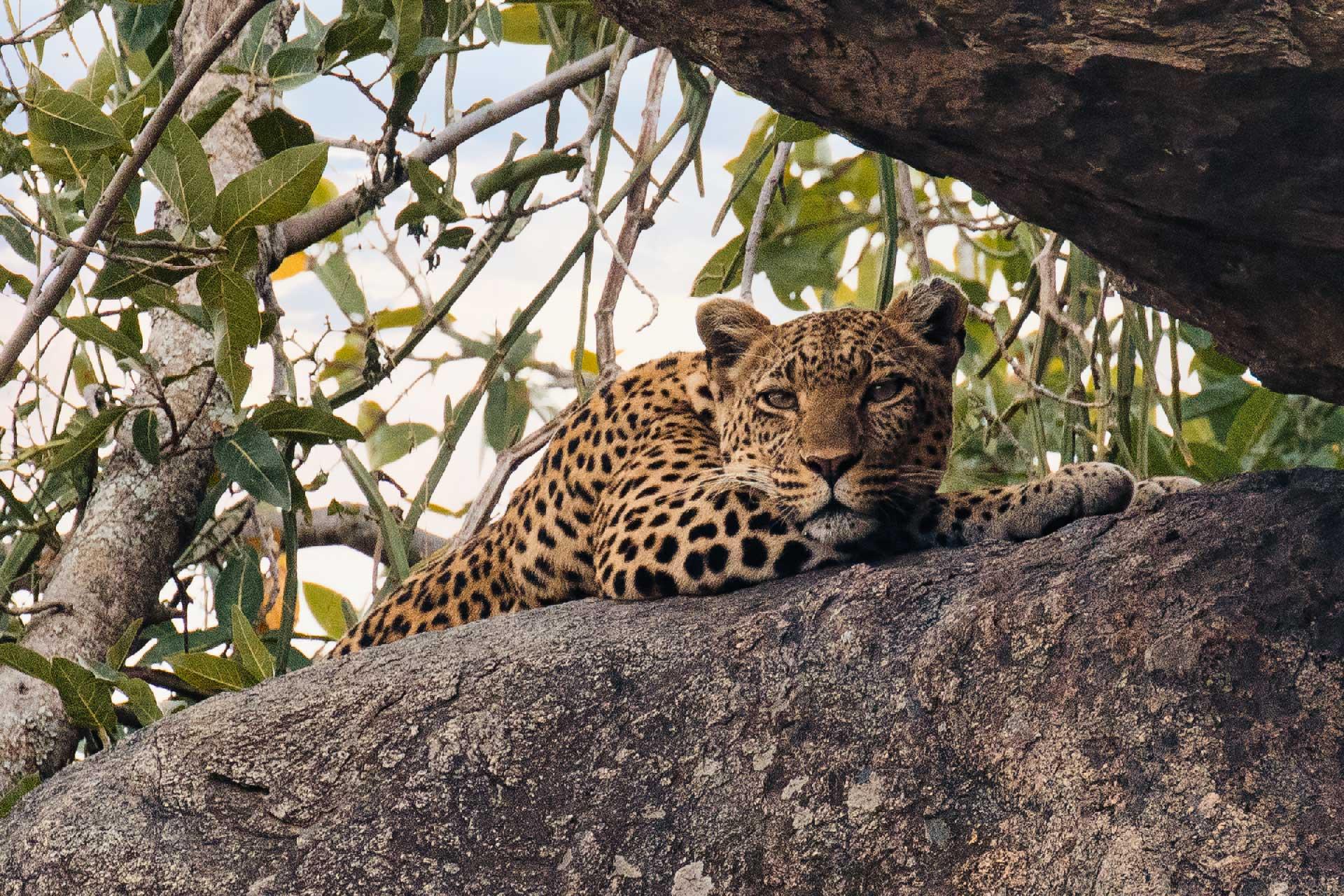Better late than never!
It has poured with rain in Tanzania since you last heard from us. What a relief! The short rains that usually start in October and continue through November, and typically finish in December, were delayed this year. The delay caused a drought, and the lack of water and vegetation threatened livestock and wildlife across East Africa. With many people speculating and worrying that these short rains would never come, it’s a blessing that the rains have arrived! Although we’ve still not had as much as we’d have liked, needed, and that has naturally occurred in the past, it is much ‘better than nothing’, and there is no gauge to when it will end. So, for now let’s hope it continues!
The rains have brought the thousands of migrating wildebeest, or ‘nyumbu’ in Swahili, down to Ndutu. They’ve surrounded the Siringit Migration Camp that is perfectly positioned in the heart of the migration and in seamless timing for the calving to begin. The plains and water sources are covered with the herds and being such vocal beings, they can be heard throughout the day and long into the night. Male wildebeest are so loud they can be heard from up to 2 kilometres away, each with their personal and different call to communicate with their own. This vast movement and noise get the attention of others, those territorial predators that have been waiting the herds arrival, and those that have followed the migration through the western corridor.
Article continues below the picture

With over 400,000 wildebeest calves expected, the herds will strategically group together to decrease each individual’s chance of being hunted. The young calves are expected to walk and then be able to run very shortly after birth, when they move protected in the heart of the herd. With lions being so territorial, the wildebeest often only need to deal with one pride at a time, as they move between territories. These tactics the herds have developed keep them best protected and limit the loss. But it’s needless to say, there will be some who are not so lucky. This must see phenonium is just on the veranda of the Migration Camp’s luxurious tents. If there’s ever a time to visit us in Ndutu, it is now!
Moving more northly to the Siringit Serengeti Camp in Seronera, although the wildebeest have migrated, there is still an abundance of game. Just last week, a large male leopard had been sighted on a tree with a kill only 150 metres from camp, a huge pride of lion with cubs only a week old were resting and playing on large kopjes 2 kilometres away, and large herds of elephants around the rivers and lakes nearby. It’s a stunning and scenic place to be, before or after visiting the Migration Camp in Ndutu. A perfect spot to enjoy the wildlife, food, and peace and quiet. Ideal to kick-back, relax and escape the world!
Article continues below the picture

Before and after visiting our beautiful properties in the Serengeti, the Siringit Villa is the ultimate place to start and finish. The golf course is as green as ever, and the pool as blue as the sea! The prefect spot to ‘cheers’ the beginning and end of your epic adventure!
In other news, Kilimanjaro Golf will be hosting the ‘Challenge Tour’ in April, a supplementary tournament of the European Tour and Sunshine Tour. With the Villa located on the 5th fairway, guests will have a perfect view of all the golfing action! Stay tuned here and on social for more updates in lead-up to the tournament!
From the Siringit Team, we’d like to wish you a healthy and prosperous 2022, and look very forward to hosting you soon!

Memories for a lifetime


